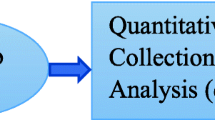Abstract
Parent or guardian perceptions play a specialized role in the evaluation of school teachers. Parents are important stakeholders in teacher success, they are in some instances partners in the teachers' work, parents have unique personal information about student learning, and they can report on the teacher duties to inform parents about the classroom and child progress. This study analyzed the responses of parents to 12 survey items concerning teacher performance in 201 classrooms. The surveys were used as part of an innovative teacher evaluation program in which teachers elected to include parent feedback as one objective data source for annual review. In this study three factors emerged as important concerns for parents: humane treatment of students, support for pupil learning, and effective communication and collaboration with parents. Recommendations for use of specific survey items can be based on the empirical results of this sampling. The data gathered by parent surveys define one dimension of quality which may vary in importance from one teacher to another.
Similar content being viewed by others

References
Chance v. Board of Examiners, 330 F. Supp. 203 (S.D.N.Y. 1971).
Davis School District. (2005). Educator Assessment System (EAS). Online: www.davis.k12.ut.us/staffdev/eas/over.htm
Drake, T. L., & Roe, W. H. (1994). The principalship, 4th edn. New York: Macmillan College Publishing Company.
Dwyer, C. A. (1995). Criteria for performance-based teacher assessments: Validity, standards, and issues. In A. J. Shinkfield, & D. Stufflebeam (Eds.), Teacher evaluation: Guide to effective practice (pp. 62–80). Boston: Kluwer Academic Publishers.
Epstein, J. L. (1985). A question of merit: Principals' and parents' evaluations of teachers. Educational Researcher, 14(7), 3–8.
Glass, G. V. (1974). A review of three methods of determining teacher effectiveness. In H. J. Walberg (Ed.), Evaluating educational performance (pp. 11–32). Berkeley, CA: McCutchan.
House, E. R. (Ed.) (1973). School evaluation: The politics and process. Berkeley, CA: McCutchan.
Jordan School District. (1995). Jordan performance appraisal system. Sandy, UT: Jordan School District, Utah.
Kauchak, D., Peterson, K., & Driscoll, A. (1985). An interview study of teachers' attitudes toward teacher evaluation practices. Journal of Research and Development in Education, 19(1), 32–37.
Lawton, M. (1997, September 17). Parents in N.Y. district to critique teachers. Education Week, p. 3.
Lortie, D. (1975). Schoolteacher: A sociological study. Chicago: University of Chicago Press.
Loup, K., Garland, J., Ellett, C., & Rugutt, J. (1996). Ten years later: Findings from a replication of a study of teacher evaluation practices in our 100 largest school districts. Journal of Personnel Evaluation in Education, 10(3), 203–226.
Mark, M. M., & Shotland, R. L. (1985). Stakeholder-based evaluation and value judgments. Evaluation Review, 9, 605–626.
McCoy, M. T. (1998, March 24). Reasons for teacher evaluation. Education Law Association, Spring Conference, Snowbird, Utah, p. 24.
McGreal, T. L. (1983). Successful Teacher Evaluation. Alexandria, VA: Association for Supervision and Curriculum Development.
Millman, J., & Darling-Hammond, L. (Eds.) (1990). The new handbook of teacher evaluation: Assessing elementary and secondary school teachers. Newbury Park, CA: Sage.
Ostrander, L. P. (1995). Multiple judges of teacher effectiveness: Comparing teacher self-assessments with the perceptions of principals, students, and parents. [Doctoral Dissertation] VA: University of Virginia.
Peterson, K. (1984). Methodological problems in teacher evaluation. Journal of Research and Development in Education, 17(4), 62–70.
Peterson, K. (2004). Research on school teacher evaluation. NASSP Bulletin, 88(639), 60–79.
Peterson, K., Gunne, M., Miller, P., & Rivera, O. (1984). Multiple audience rating form strategies for student evaluation of college teaching. Research in Higher Education, 20, 309–321.
Peterson, K. D. (1987). Teacher evaluation with multiple and variable lines of evidence. American Educational Research Journal, 24, 311–317.
Peterson, K. D. (1989a). Parent surveys for school teacher evaluation. Journal of Personnel Evaluation in Education, 2(3), 239–249.
Peterson, K. D. (1989b). Costs of school teacher evaluation in a career ladder system. Journal of Research and Development in Education, 22(2), 30–36.
Peterson, K. D. (2000). Teacher Evaluation: A Comprehensive Guide to New Directions and Practices, 2nd edn. Thousand Oaks, CA: Corwin Press.
Peterson, K. D., & Chenoweth, T. (1992). School teachers' control and involvement in their own evaluation. Journal of Personnel Evaluation in Education, 6(2), 177–189.
Scriven, M. (1973). Handbook for model training program in qualitative educational evaluation. Berkeley, CA: University of California.
Scriven, M. (1988). Duty-based teacher evaluation. Journal of Personnel Evaluation in Education, 1(4), 319–334.
Shinkfield, A. J., & Stufflebeam, D. (1995). Teacher evaluation: Guide to effective practice. Boston: Kluwer Academic Publishers.
Stronge, J. (Ed.) (1997). Evaluating teaching: A guide to current thinking and best practice. Thousand Oaks, CA: Corwin Press.
Stronge, J., & Ostrander, L. (1997). Client surveys in teacher evaluation. In J. H. Stronge (Ed.), Evaluating teaching: A guide to current thinking and best practice (pp. 129–161). Thousand Oaks, CA: Corwin Press.
Utah State Code, 53A-10-101-111. (Ant. 1953).
Waller, W. (1932). The sociology of teaching. New York: Wiley & Sons.
Wolf, R. (1973). How teachers feel toward evaluation? In E. House (Ed.), School evaluation: The politics and process (pp. 156–168). Berkeley, CA: McCutchan.
Author information
Authors and Affiliations
Corresponding author
Rights and permissions
About this article
Cite this article
Peterson, K.D., Wahlquist, C., Brown, J.E. et al. Parent Surveys for Teacher Evaluation. J Pers Eval Educ 17, 317–330 (2003). https://doi.org/10.1007/s11092-006-5740-9
Received:
Revised:
Accepted:
Published:
Issue Date:
DOI: https://doi.org/10.1007/s11092-006-5740-9



